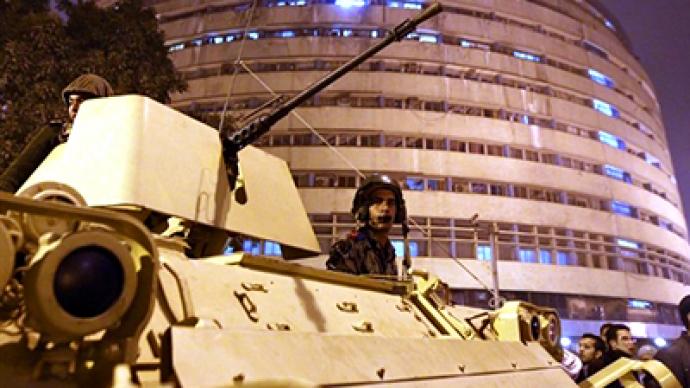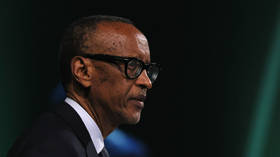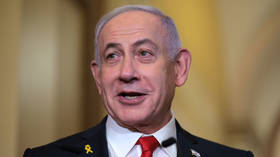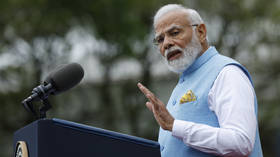US eyes Middle East unrest with own interest in mind

Protests inspired by the revolt in Tunisia have dominoed along Egypt, Yemen and Algeria with citizens calling for governmental change. What will this mean for US involvement in the region?
Tens of thousands of rioters have continued to clash with police throughout Egypt. The nation has opted to block Internet and other communication methods, called in the army and instituted a nationwide curfew. None of those steps has curtailed the protests. US officials have called on the government of Egypt to respect the right of the people to protest and allow the access to communication tools.Egypt is an important ally of the US in the war on terror against al-Qaida and receives more US foreign aid than any other country in the region. US vice president Joe Biden referred to Egyptian President Hosni Mubarak as a close ally of the United States.“Mubarak has been an ally of ours in a number of things that he’s been very responsible on relative to geopolitical interests in the region, Middle East peace efforts, the actions Egypt has taken towards normalizing relations with Israel and I think it would be, I would not refer to him as a dictator,” he said. Investigative journalist Wayne Madsen explained Biden has been involved in US politics for a long time, and it’s no surprise he sees Mubarak in this light.“He’s obviously, as a Senator, coddled a lot of dictators supported by the United States,” Madsen remarked. “He’s just been around Washington too long. He’s been an insider. He doesn’t understand dictators from democratic leaders.” Politics places a big role in the unrest in the Middle East; however economic concerns are just as important, he explained. “They have high unemployment, food prices have skyrocketed, other costs have skyrocketed. You have an increasing number of poor people,” Madsen said. “What we’re seeing play out in Tunisia, Egypt and other countries is no different than what we saw in Greece and what we’ve seen in Italy and what we’ve seen in the UK. This is a reaction against the austerity moves. These countries are beholden to the World Bank and IMF. There are now protests in Albania, people are calling for the end to that government too, he said. However, there is no coverage of that because Albania is a NATIO member state. “What kind of message is this sending?” he commented. The US government and US based organizations have centrally been involved in working with opposition groups, however the economic and political issues in Tunisia and Egypt are what brought about the people’s reactions. “We may have nurtured some of this, but we never thought that Mubarak was going to be toppled from power,” Madsen said. “I’ll tell you whose next. The Saudi’s are looking at this very closely, if that regime goes, then all bets are off!”Webster Tarpley, an investigative journalist, explained the CIA, and other intelligence services from the US and other former colonial powers are behind uprisings in Egypt and elsewhere in the Middle East. He argued the British, who formerly controlled much of the Middle East, control and speak through Al Jazeera. “They are playing the card of mob rule,” he said. “They seem to be shooting the works for destabilization.” Tarpley argued the US via the CIA and others have been planning and working to over through the government in Egypt for three years. “Mubarak is not dependent enough, he is not dependent enough on NATO, he’s not dependent enough on the IMF,” argued Tarpley, explaining why the US would want to overthrow its ally. “It appears Mubarak is fighting back.”















